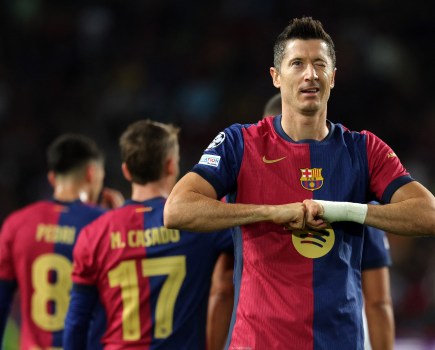Just organising competitive matches is a struggle in Micronesia, a region where rugby and Aussie Rules dominate.
The tiny islands scattered across the Pacific Ocean represent football’s last frontier. Take Nauru, which – at just 8.1 square miles – is the world’s smallest island nation. The game
was first introduced to Nauru in the 1960s by migrant workers from the neighbouring islands of Tuvalu, Kiribati and the Solomon Islands who came to mine phosphate. At one point, half-a-dozen sides played in a thriving league, but the mining boom also brought Australians, who established Australian Rules football.
Today, with the phosphate gone, Nauru is broke. Crowds of several hundred watch games of Aussie Rules, but organized football has fallen apart and Nauru’s chances of ever playing football at the Pacific Games, the main regional competition, are remote.
Rayong Itsimaera, Nauru’s minister for sport, says: “We hope to see Nauru become a regular member of the FIFA family, but the main obstacles are no qualified personnel to organise training programs at junior and senior level, and changing people’s interest from other popular sports.”
Paul Watson found a similarly bleak situation when, earlier this year, the young Englishman moved to Pohnpei, one of four islands that form the Federated States of Micronesia (FSM). The Micronesians had made their Pacific Games debut in 2003 in Fiji, where their best result was a 7-0 thumping from Tonga. The other games were lost 10-0 to Papua New Guinea, 17-0 to Tahiti and 18-0 to New Caledonia.
“You’ve got to expect some beatings to start with, but mentally the islanders do not like it,” says Watson.
The 2011 Pacific Games in New Caledonia is Watson’s aim but he needs players from the other three islands in the FSM – and that’s not exactly easy. “It’s a two-hour flight costing £400 just to bring a player over for a trial from Yap [the nearest island],” he shrugs.
Yawning distances between islands is the reason the Oceania Football Confederation (OFC) suggested that Micronesia might prefer to join the Asian Football Confederation (AFC), whose members include nearer neighbours such as Guam.
Eleven full members
Australia’s defection to the AFC in 2006 left the OFC with 11 full members and two associates, Kiribati and Tuvalu. In the last year, football officials from both islands have visited Sepp Blatter and full FIFA membership is likely. However, the OFC is not trying to emulate Jack Warner’s CONCACAF empire by recruiting tiny islands, where the game is hardly played, just for their votes at FIFA congresses.
This year, the OFC let one associate, the Commonwealth of the North Mariana Islands, join the AFC. Another, Niue, whose sole Pacific Games appearance in 1983 included a 19-0 thrashing by Papua New Guinea and a 14-0 rout at the hands of Tahiti, were ejected from the OFC due to lack of football development.
“Lack of resources, finances [and] high cost of air fares make it difficult to assist football development,” says OFC general secretary Tai Nicholas.
The OFC receives £1.5million a year through FIFA’s financial assistance programme, plus another £5m through the “Win in Oceania” programme which was launched at
the start of this year. But this does not even cover travelling expenses.
“We think associate or smaller federations should prioritise which tournaments they enter because of cost,” suggests Nicholas. “But we do have a long-term plan to develop football in all the Pacific islands.”
However, that plan is hindered by problems of making contact.
The French colony of Wallis & Futuna played in the Pacific Games on half-a-dozen occasions – even finishing fifth in 1987 – but have not entered since 1995. Along with Palau, Tokelau and Nauru, the OFC wants to make contact with the football authorities in Wallis & Futuna…but, unfortunately, they don’t even have their phone number! l






